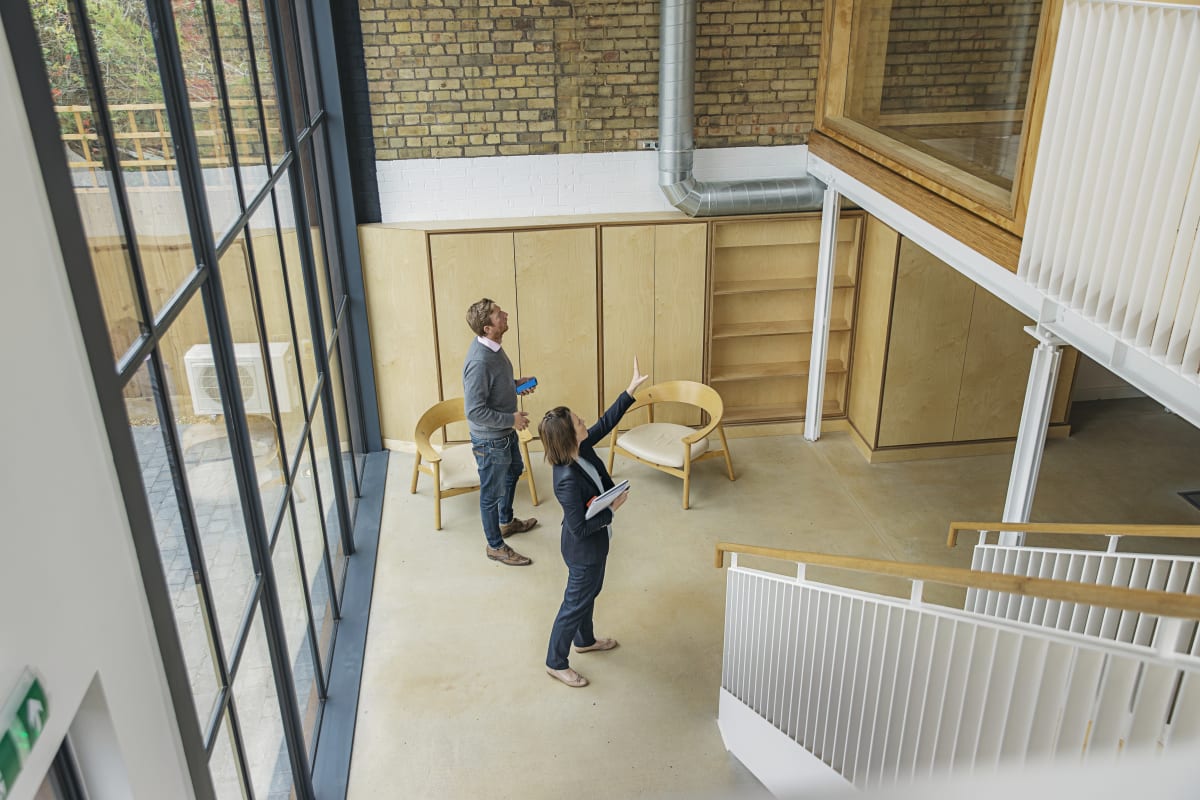Katja Pfennig is a Senior Franchise Business Development Manager at IWG. She talks about the success of the franchise model in Germany so far, as well as their ambitious plans for 2022.
The global shift towards hybrid working has been happening in the background for years now, but until the Covid-19 pandemic, Germany was considered one of the later adopters. Now, as hybrid rapidly accelerates into the mainstream all over the world, businesses across Germany are recognising the enormous benefits of the model, leading to a surge in demand for flexible workspaces.
Katja Pfennig, Senior Franchise Business Development Manager for IWG in Germany, says there has been a significant cultural shift since the Covid-19 crisis began, with business leaders and managers now realising that flexible working doesn’t adversely impact productivity or the bottom line, and that it can in fact provide a boost due to a happier, more productive workforce.
“The pace of change has been incredible”, Katja says. In fact, it’s been widely acknowledged that the adoption of flexible working practices over the last two years or so, catalysed by the pandemic, is something that would have otherwise taken 10 years to happen.
There is now urgent demand for flexible workspaces across all regions of Germany. And while demand is still strong in major urban centres such as Munich and Berlin – where IWG has just opened a new centre under its iconic Signature brand – it’s the secondary towns and cities where businesses are in most need of flexible work solutions.
Pfennig says: “It is generating a lot of interest from franchisees, property owners and investors. But as more and more companies redefine their workspace strategies, realising they no longer need expensive city-centre HQs under long leases but space in the suburbs, demand is spiralling, and we are proactively seeking more partners to help us meet this growing trajectory.”
Demand is shifting from cities to suburbs
IWG currently boasts around 150 locations in Germany – including all the major commercial hubs that one would expect such as Munich, Frankfurt, Berlin and Hamburg – and its franchise programme has seen impressive growth, with four multi-centre partnership agreements signed within the last two years.
Pfennig says what’s fascinating now is that interest in suburban areas and medium-to-small cities is increasing, as more and more businesses adopt the hybrid model, empowering their employees to work near to where they live. This effect can be seen across the whole country, with companies simultaneously looking to reduce the costs associated with running now underused traditional office spaces.
This trend is reflected in plans from IWG’s current franchise partners, including Ralph Altenburger, who is opening eight centres in regional cities surrounding Munich, including Augsburg, Ingolstadt and Ulm.
Another partner, investor Oliver Bossmann, has recently opened a centre in Neuss, near Dusseldorf. Despite opening at the height of the pandemic in June 2020, the centre has successfully met all its occupancy and profit targets. Bossmann is now looking to expand into secondary cities and towns such as Aachen, Düren and Frechen.
New IWG centres from existing partners are also due to open this year in the Bavarian cities of Regensburg and Ismaning, with several more in the pipeline.
A good return on investment
Pfennig says most franchisees are currently concentrated on the southern regions of Germany, but highlights that there is now growing interest in other parts of the country, from Potsdam in the east, to Wolfsburg in the north and Bochum in the west.
One of the biggest draws of the IWG franchise programme is it’s proven track record and high return on investment. Katja says: “IWG has led the flexspace sector for over 30-years, so partners benefit from our wealth of experience, knowing that they’ve invested in a high-growth industry, with strong returns over a relatively short space of time.”
Pfennig explains: “The average centre requires you to invest around €400,000, depending on the deal structure. That covers the cost of opening, but also the first year of operations, before the centre becomes cash profitable within the first 18 months. On an average centre which performs well, you can expect to have a payback on your investment in 3-4 years.”
There are great benefits to signing a cluster franchise agreement, Katja adds. This type of deal gives investors exclusive rights to open centres in a particular region. It means that from the moment their first centre starts to pay off, partners can take that profit and put it into their second centre and then into their third, and so on.
With demand in smaller towns and cities high and plenty of untapped locations, Pfennig says that now is the perfect time to become an IWG franchise partner in Germany. The flexspace market is one of the highest growth sectors, and it’s showing no signs of slowing down.
Indeed, with research from IWG showing that three times the number of FTSE 250 companies are looking to use a hybrid office model compared to those looking to carry on in the same way as pre-pandemic, it’s perhaps no surprise that the group saw an incredible 350% rise in the number of new flexspace locations signed up by franchise partners in the first half of 2021 versus the same period in 2020.
Pfennig expects to sign more partnerships this year, supporting IWG’s aim to open around 1,000 new centres around the world this year to meet surging demand for hybrid work solutions.
“We’re investing more and more resources into supporting our franchise partners’ needs in Germany and beyond, and we’re also putting more budget into marketing initiatives to find the right partners – people who are bringing not only the investment capital but also the necessary management and operational experience,” she explains.
“Our global network is already four times the size of our nearest competitor, but in order to meet the intense demand for hybrid work solutions, we want to expand even further and even more rapidly. Our ambition at IWG is to get to a point where we have flexible workspaces in the heart of communities all over, in villages, towns and cities, and the growth of our franchise network is a key part of this strategy.”
Are you ready to meet the demand for flexible office space in 2022? Find out more about IWG’s franchising partnerships today.






